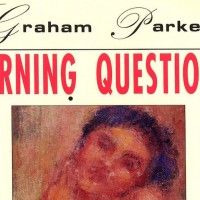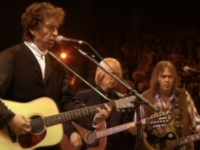In its way, Johnny Marr’s riff on the Smiths’ “How Soon Is Now?” was every bit as important in its era as Keith Richards’ on “(I Can’t Get No) Satisfaction” a generation before.
It sounded like angry desperation, providing a similarly angry counterpoint to a similar, but far more modern sense of ennui: “I am the son and heir,” Morrissey famously sang, “of nothing in particular.” Of course, that was actually a direct lift from George Eliot’s novel Middlemarch, but who knew that then?
More particularly, who cared? This was so, so 1980s: Somewhere between sentimentality and detachment.
Originally released as a B-side to the 1984 single “William, It Was Really Nothing,” the Smiths’ “How Soon Is Now?” took on a life of its own in the mid-1980s, reaching the Top 25 in the UK anyway. It later appeared on the U.S. version of the group’s second album Meat Is Murder on Feb. 11, 1985, as well as a series of compilations including 2011’s Complete.
As its devastating story of despair and recrimination unfolds, Johnny Marr just keeps making his grinding guitar sound – worked out, just before the song was put to tape, during a jam session which included the inspirational Elvis Presley favorite “That’s Alright, Mama.” That very repetition, coupled with an oscillating rhythm effect courtesy of a Fender Twin Reverb, gives Marr’s principal riff this sense of ever-evolving complexity – like a lightning-bolt revelation, then like an angry moment of acceptance, then like a cutting reminder of grinding disappointment. There’s a reason that Rolling Stone magazine named “How Soon Is Now?” one of rock’s 100 greatest guitar songs in 2010.
Morrissey’s lyrics, sung the next day in just a couple of takes, likewise defines the Generation X aesthetic as much as “(I Can’t Get No) Satisfaction” did the hippies before them: “There’s a club, if you’d like to go,” Morrissey sings, drawing a deft portrait of the romantically detached AIDS era. “You could meet somebody who really loves you. So you go and you stand on your own – and you leave on your own, and you go home and you cry and you want to die.”
When the song breaks down into a shambling quietude, almost at the end, it allows Marr a chance to gather himself for another series of thundering stabs at his instrument. But not before a wobbly counterpoint rhythm reemerges, punctuated by these bursts of slap-bass aggression. The tension is palpable as Marr and Morrissey begin tangling again.
For the singer, it’s like rejoining in mid-sentence during an ugly fight: “You shut your mouth! How can you say I go about thing the wrong way? I am human and I need to be loved – just like everybody else does.” For the guitarist, it’s a even harder-edged rebuke, the sound of somebody saying, musically, “I told you so.”
In truth, however, “How Soon Is Now?” isn’t terribly representative of the Smiths’ core sound, which tended toward the acoustic, and even more toward the morose. Elsewhere, there is mostly simmering melancholy: “Haven’t had a dream in a long time,” on “Please, Please” from Hatful of Hollow; “why do I give valuable time to people who don’t care if I (octave change here) live or diiie” on “Heaven Knows I’m Miserable Now” from Louder Than Bombs; “please, keep me in mind,” on “Well I Wonder” from Meat Is Murder; and “my only weakness is … never mind,” from “Shoplifters of the World Unite” from the oh-so-appropriately named The World Won’t Listen.
Morrissey seemed to cop to the growing ennui at times, for instance famously singing – you could almost hear him winking – “I know, I know, it’s really serious” on “Girlfriend in a Coma” from Strangeways, Here We Come. All kidding aside, though, the Smiths’ eloquent reshaping of youthful angst took Brian Wilson’s air-tight 1960s-era childhood-bedroom reveries right to the edge of the window sill.
They then looked down at the parents’ quiet, darkened backyard below … and almost really jumped. “How Soon Is Now” is the scream you’d hear next – either way.
- ‘Together Through Life’ Remains One of Bob Dylan’s Most Low Key, Organic LPs - April 15, 2024
- Why Joe Jackson’s Retro ‘Body and Soul’ Said So Much About His Future - March 14, 2024
- How Rudolph Stole the Show on ‘The Temptations Christmas Card’ - December 25, 2023




